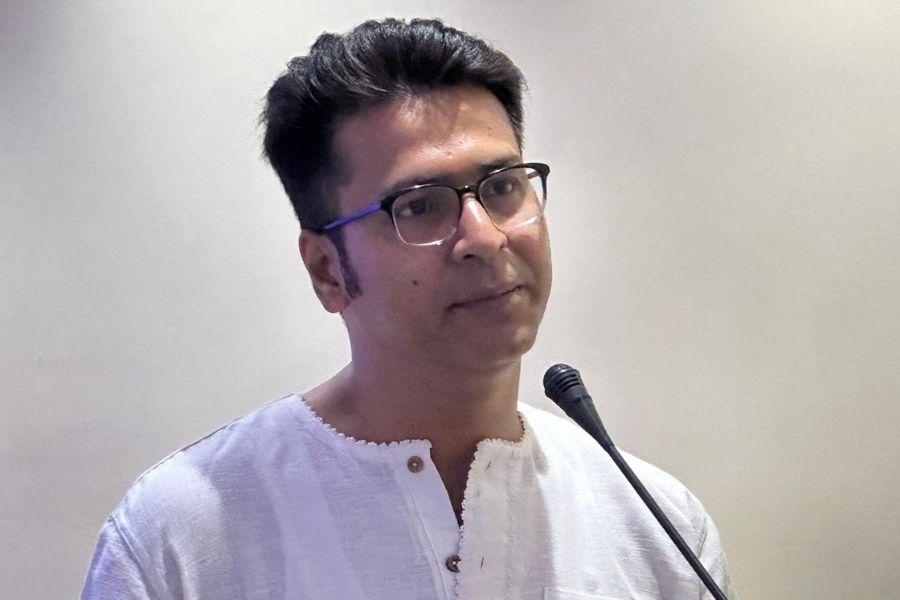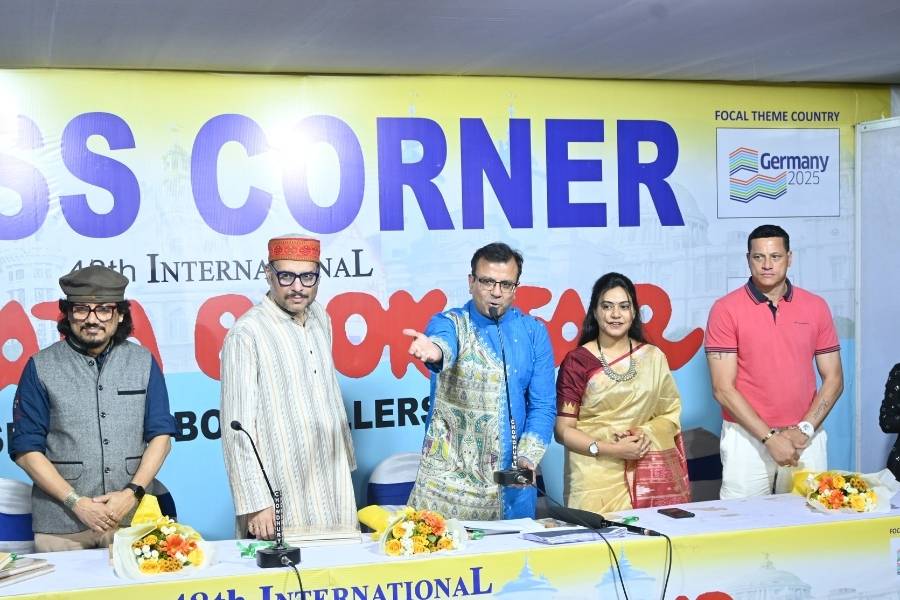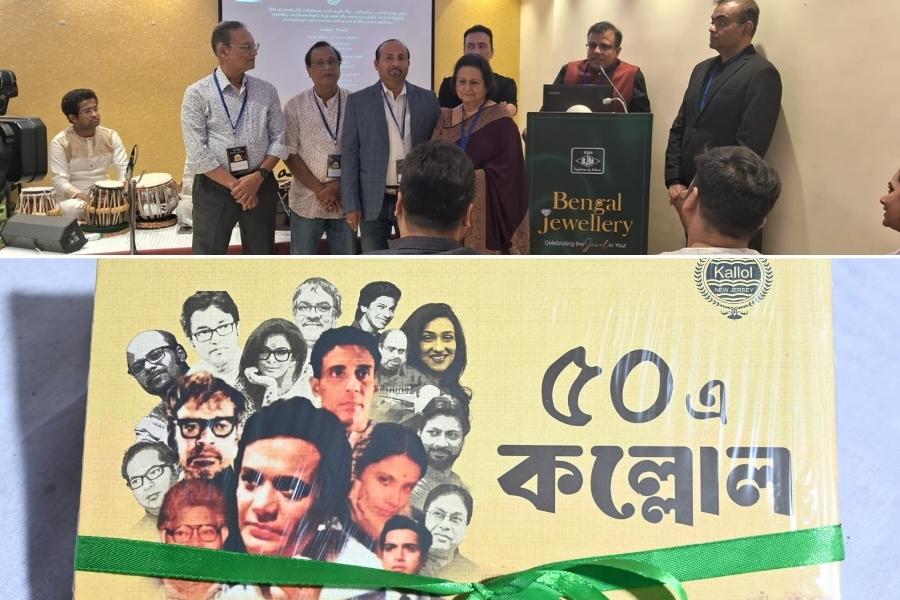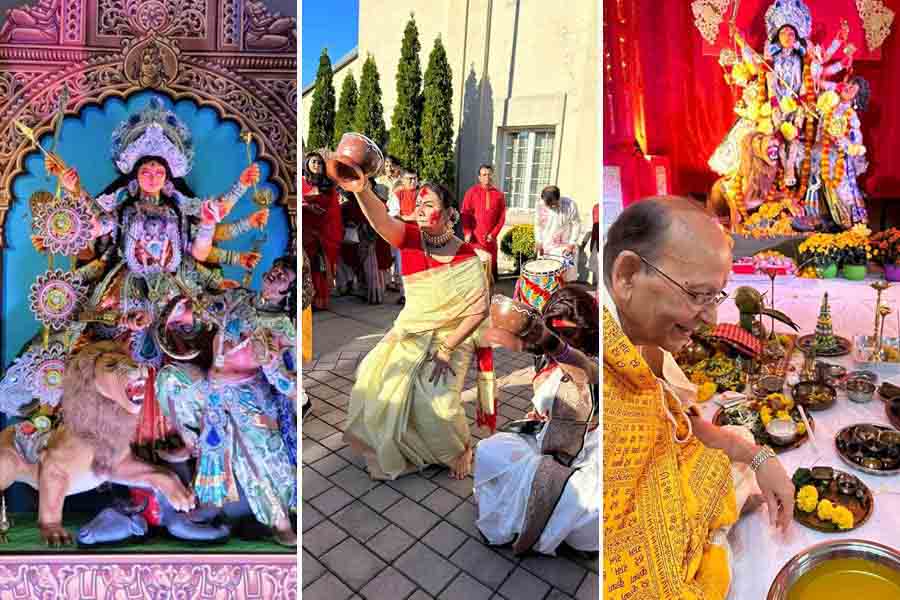Kallol of NJ, one of North America’s largest Bengali socio-cultural organisations, observed its 50th anniversary with a celebratory kickoff in Kolkata this month. Though the main celebration is set for July in the US, the milestone was commemorated early with a meet-and-greet extravaganza featuring artistes like Anirban Bhattacharya, Sourendro-Soumyajit, and Somlata Acharyya Chowdhury, all of whom will be performing during the main celebration in July, to be hosted in New Jersey.
Founded in 1975 by 24 first-generation Bengali immigrants in the US, Kallol has grown into a close-knit community, preserving and promoting Bengali heritage across generations. Its most prominent celebration is Durga Puja, but the organisation also observes ‘Tero Parbon’ year-round, creating a cultural haven far from home. Beyond festivities, Kallol offers a unique clubhouse for members, complete with a book club, table tennis club, carrom club, music and dance programmes, leadership development, youth activities, and a women’s forum supporting the education of underprivileged children in India.
Kallol has unconditionally been a trusted space for the Bengali probashi

Anirban Bhattacharya at the Kallol celebrations
At the February 2 kick-off event at Infinity Quest in Beckbagan, Kallol’s president, Pinaki Datta, was joined by the Board of Trustees and Executive Committee members — a number of them senior citizens and long-term US residents — who flew to Kolkata for the occasion. Bengal Jewelers curated the menu, serving quintessential Bengali snacks like phuchka, jhal muri, beguni, kochuri and fish fry, adding to the nostalgia quotient.
On February 7, Kallol hosted a book launch at the Press Corner of the International Kolkata Book Fair, unveiling 50 e Kallol, a commemorative volume chronicling the organisation’s journey. The event featured a panel discussion with poets Binayak Bandyopadhyay and Aditi Basu Roy as well as elocutionist Shovan Sundar Basu.
“Kallol ekta konthhoshawr! It has kept the Bengali language and culture active in America,” said Bandyopadhyay, recalling how a 2014 poetry recital hosted by Kallol had deeply inspired his writing. During the panel, he read an English poem, a Bengali poem and even composed a verse for Kallol on the spot.
Basu, who has been associated with Kallol since 2011, enthralled the audience with his signature voice modulation. He also highlighted Kallol’s philanthropic contributions, pushing back against the common critique of “brain drain”. “People like to complain about it,” he noted, “but many who go abroad and succeed also give back in meaningful ways.” Basu Roy echoed the sentiment, praising Kallol’s altruistic spirit. “Kallol has unconditionally been a trusted space for the Bengali probashi, working relentlessly to promote our culture,” she said.
Kallol’s global quiz saw a Kolkata team join at 3am and win!

The panellists for Kallol’s book launch event along with Douglas Silva
The evening also saw an unexpected guest — celebrated Brazilian footballer Douglas Silva — who was later felicitated. Speaking to the audience, he acknowledged Kolkata’s deep-rooted love for football, a connection that has endured for centuries.
As the celebrations drew to a close, Datta shared the story of Kallol’s global online quiz competition, a tradition born during the Covid-19 pandemic. “Usually, no Indian team participated due to time zone constraints,” he said. “But in 2024, for the first time, a team from Kolkata joined — playing at 3am! To our delight, they won the competition, and we’re awarding them today.”
With its golden jubilee underway, Kallol stands as a testament to the enduring power of cultural identity, proving that even continents apart, Bengalis will always find a way to stay connected.

